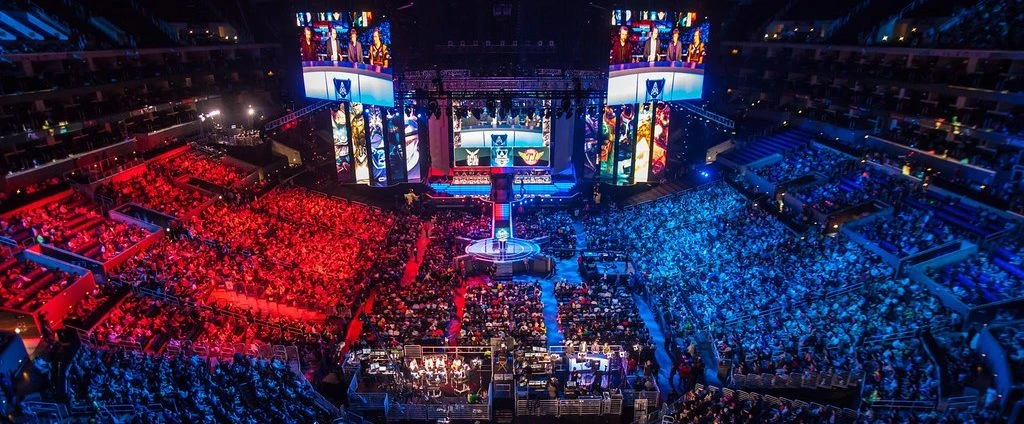The other beautiful game: Is esports Brazil’s second sport?

“I think esports is already the second biggest sport in terms of popularity,” says Udo Seckelmann of Bichara e Motta Advogados. “Not in terms of betting, but in terms of younger generations viewing esports more positively than they do other sports, including football.
“Maybe in the next ten years, it surpasses football.”
In a country synonymous with o jogo bonito the idea it may be usurped may seem extreme. But Seckelmann’s firm represents a range of high profile sportspeople, including surfers, skateboarders and, yes, footballers. It’s now starting to represent more and more esports players, not to mention increasing buy-in from betting operators.
There’s a vast audience on offer, says esports veteran Leo de Biase. Portuguese is “a language nobody speaks”, he says with a laugh. But because of esports’ popularity in Brazil, it is now the second most prevalent language on Twitch after English.
De Biase has worked in esports and gaming for more than 25 years, spanning LAN centres, time at Nvidia and has worked to bring some of the world’s leading esports leagues to Brazil. He agrees with Seckelmann; esports is established in the mainstream.
Growing pains for Brazil esports
However, while betting sponsorship provides some funding he points out there is a big gap compared to traditional sports. While ad slots in a Serie A match will sell for BRL300m, granting exposure to an audience of five to eight million, a Free Fire tournament, watched by double that number, will only sell sponsorship for around BRL15m.
And when it comes to betting Brazil has a young and engaged population, but that isn’t necessarily a demographic with big spending power, Marek Suchar, co-founder of esports betting specialist Oddin explains. “The average bet size is less than half of what you would find in North America,” he points out.
It’s also a relatively immature market, Suchar continues. Brazil has no legal gambling heritage,and betting has only been legal – but not regulated – since 2018. A new betting product in esports, in a new market, means there have been instances of sharp bettors taking advantage of delayed streams and weak odds to profit.
In the regulatory framework due to come into force from 1 January, there is no official wording around esports, Seckelmann adds. However, there is a general consensus that it meets the criteria to be considered a sport, with this stance supported by Brazil’s ministry of sports. “But this is a discussion point that is not 100% clarified,” he says.
What titles drive esports betting in Brazil?
But for the structure of the market, what games are performing well? To De Biase, Free Fire is “the game of the people”, and the most popular title by a huge margin, albeit one that is not yet a key betting title. Usual suspects such as Counter-Strike (CS) and League of Legends also perform well, he says, alongside Ubisoft titles including Rainbow Six and Valorant.
Data from Loadout Esports & Gaming, shared exclusively with iGB, shows a particular affinity for CS, with 7% of the LatAm region watching the title, one of the key betting titles in esports.
Suchar points out esims could become crucial titles in Brazil. There’s huge potential in efootball, he suggests, meaning the esports audience hasn’t quite fallen out of love with the beautiful game just yet.
This is supported by Loadout’s data, showing a crossover between football and esports viewers. A survey of 1,000 esports enthusiasts found that 95% also watch football, surpassing the crossover between esports and the NFL in the US.
Brazil’s second sport
After all, aside from football, there isn’t really a second sport in Brazil. Yes, there’s some interest in basketball and volleyball. An American football game taking place in Sao Paulo suggests the NFL sees an opportunity to cultivate a new fanbase.
But as Seckelmann says, esports is the second biggest sport in the market. Sponsorship in football is already close to saturation point, with the biggest brands moving away from club deals to league branding. People will wonder where else to invest.
And according to Loadout’s surveys, there is a significant crossover; 38% of regular esports viewers bet on the competitions.
“I think everyone will jump in,” De Biase says. “It will bring more and more money into the industry and there will be concern about keeping sponsorship under control.
“But it’s much needed money since traditional brands aren’t pouring millions and millions into esports. I was more worried regarding federations and confederations than I am with betting and igaming,” he adds.
“They are super supportive and we need that kind of incentive for our ecosystem.”

